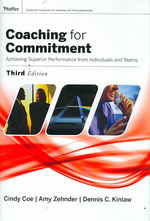- ホーム
- > 洋書
- > 英文書
- > Business / Economics
Full Description
This informative book deconstructs two key myths in economic theory and policy: that inflation is always a monetary problem and that it can be contained by raising interest rates. Imad A. Moosa identifies many of the causes of the cost of living crisis and proposes policy reforms to alleviate its effects.
The Cost of Living Crisis uses historical and simulated data to contest the proposition that inflation can be constrained solely through monetary policy and nine potential causes of resurgent inflation are identified, analysed and systematically evaluated. Moosa refutes claims made by central bankers and politicians about their ability to control inflation and recommends the reconsideration of neoliberalism, the regular adjustment of minimum wages, the utilisation of consumer protection and the rethinking of tax codes, foreign policy and militarism. Ultimately, Moosa argues that any action taken to deal with the cost of living crisis should protect the wellbeing of the majority rather than the interests of major corporations.
The Cost of Living Crisis is a thought-provoking read for academics and students of economics, regulation, public finance, sociology and economic sociology. Written in an engaging and accessible style, this book is also of interest to policymakers and politicians engaged in international financial regulation during highly turbulent times.
Contents
Contents
Preface
1 The cost of living crisis: an overview
2 The cost of living crisis as a global phenomenon
3 Consequences of and responses to the crisis
4 Causes of the crisis: inflation
5 Causes of the crisis: wage stagnation and neoliberalism
6 Implications for economic theory: inflation as a monetary
problem
7 Implications for economic theory: debunking the
Friedmanite myth
8 Macroeconomic policy implications: rethinking the role of
interest rates
9 The way forward: rethinking public policy
References







